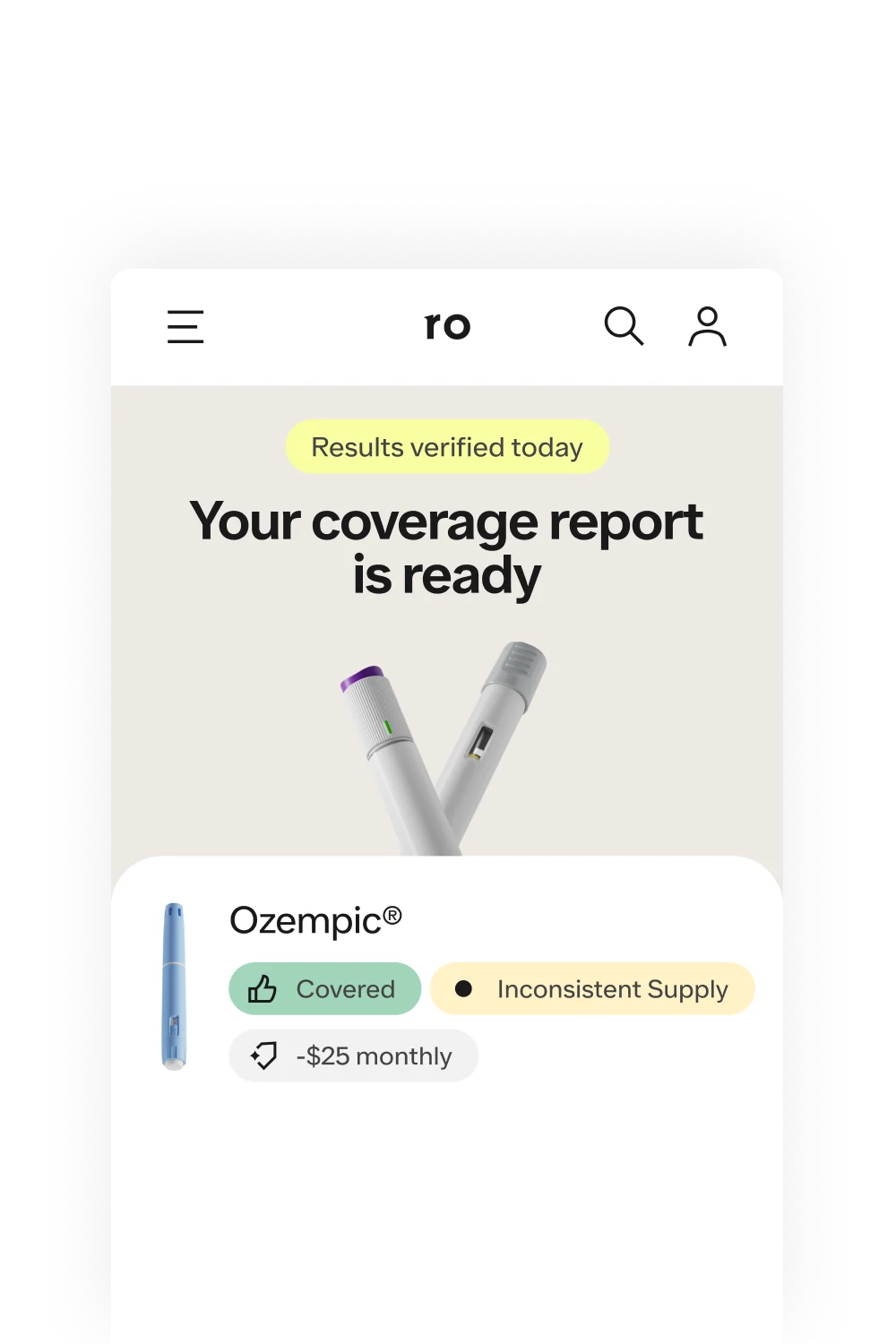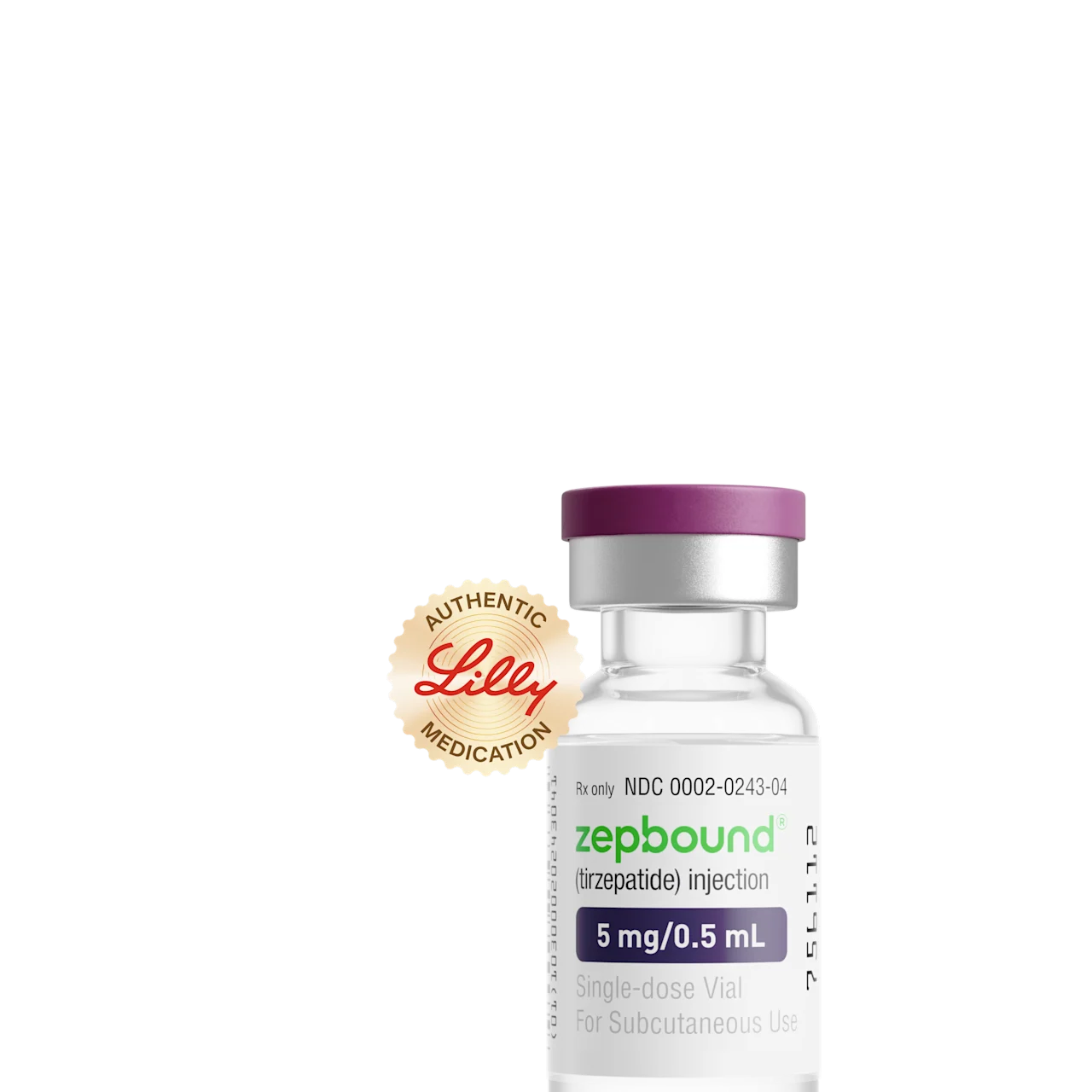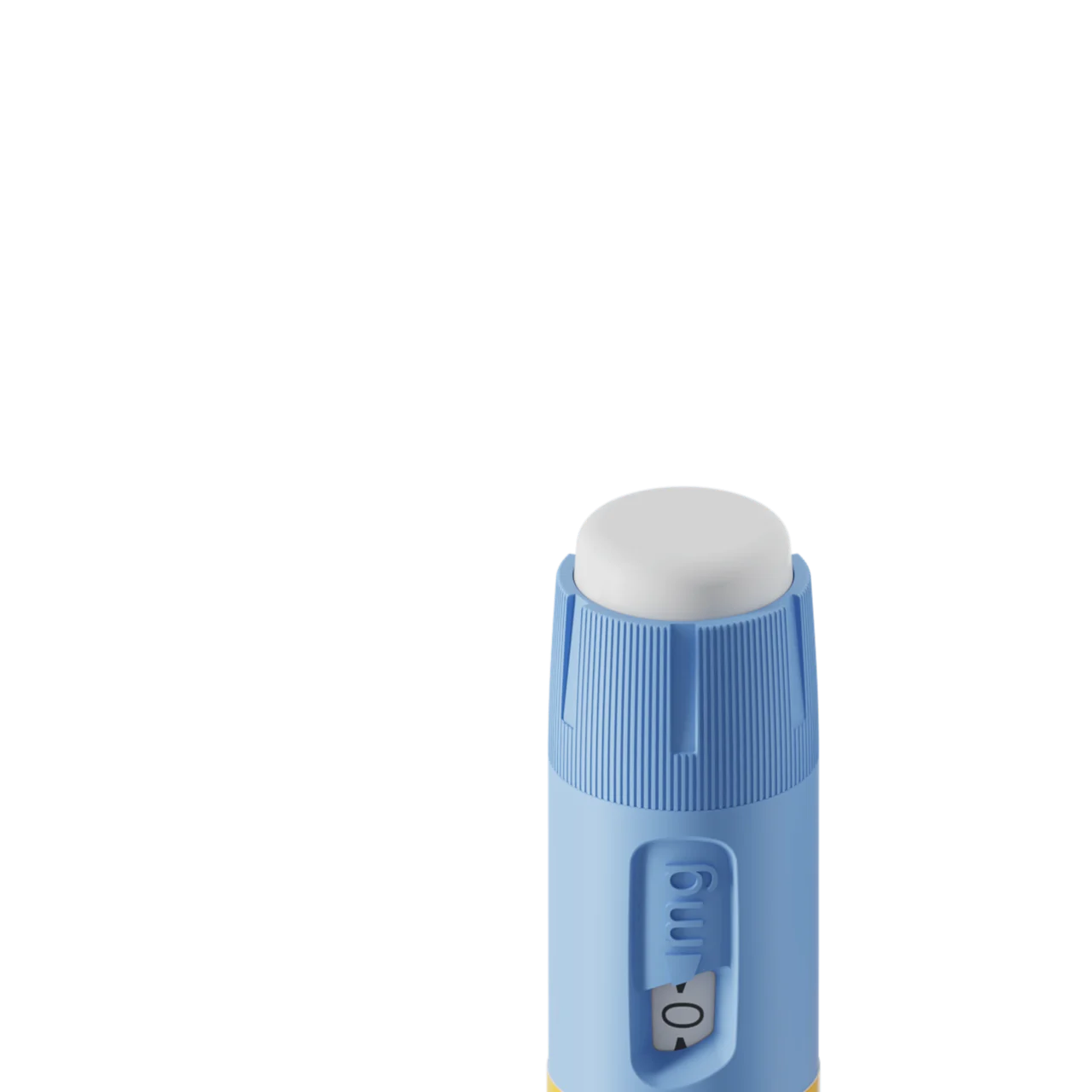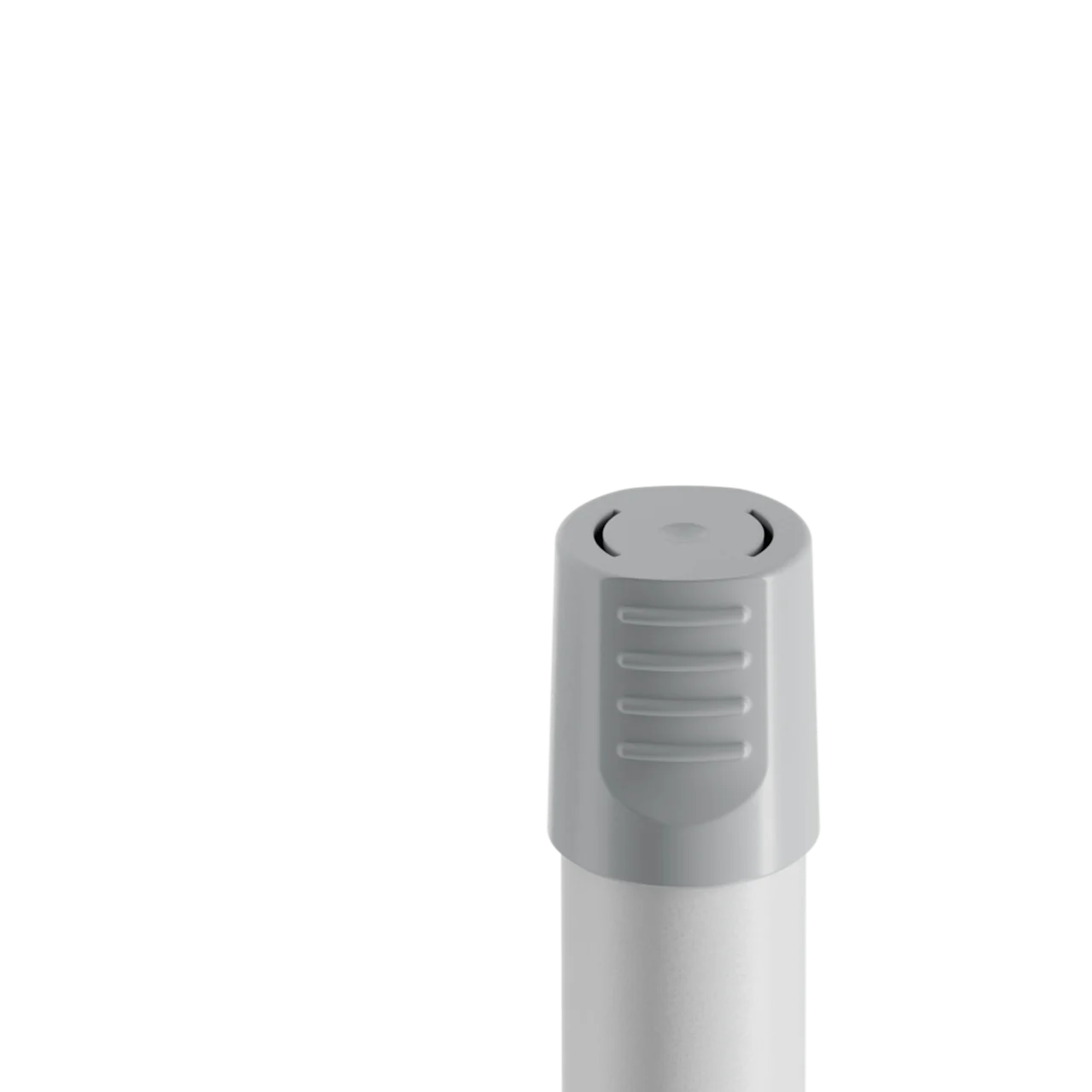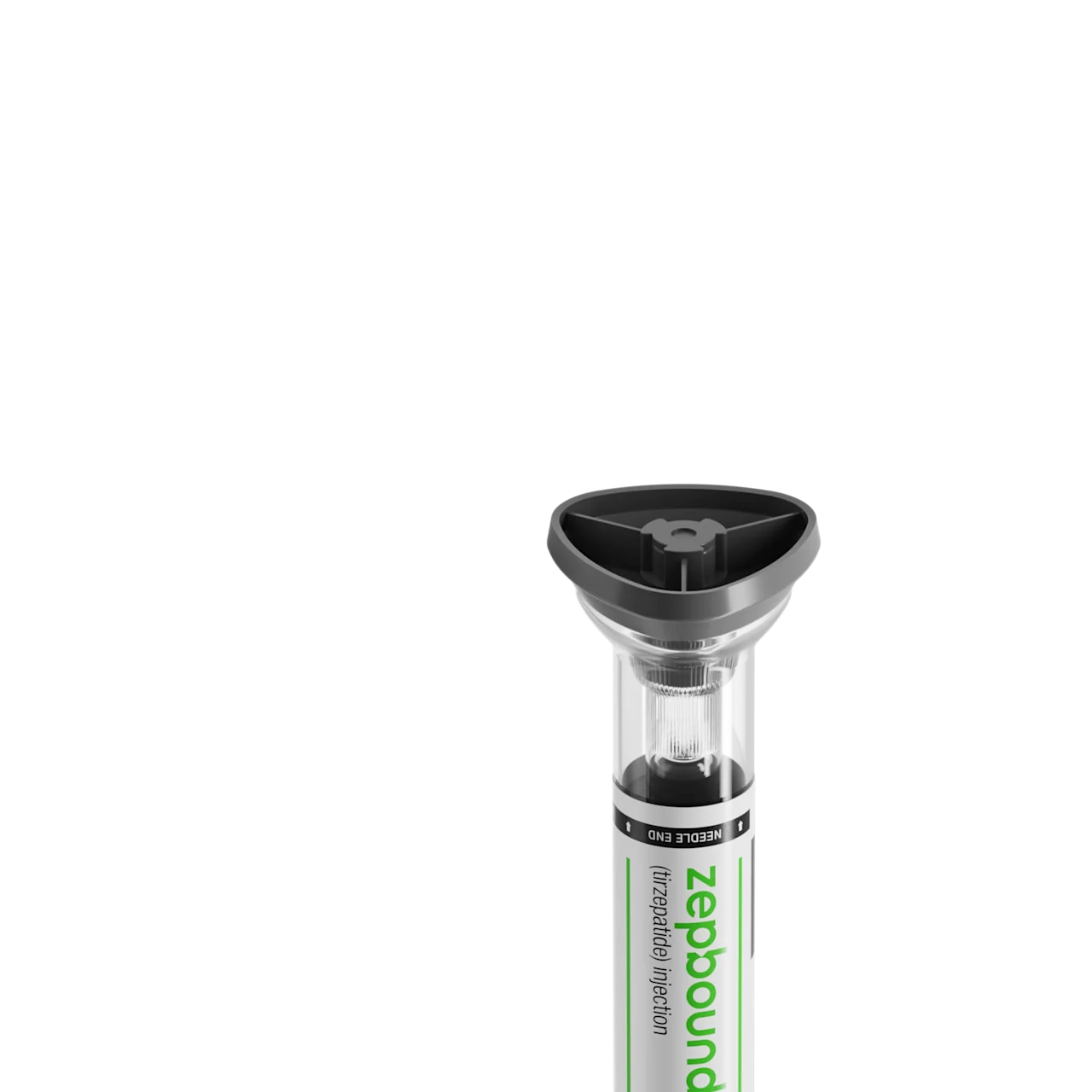Key takeaways
Yes, semaglutide can make you tired. For some, it’s a side effect that goes away once their body gets used to the medication.
Semaglutide fatigue may be caused by reduced food intake, dehydration, and low blood glucose levels.
Staying hydrated, eating balanced meals, exercising, and getting quality sleep can help you manage fatigue.
Here's what we'll cover
Here's what we'll cover
Here's what we'll cover
Key takeaways
Yes, semaglutide can make you tired. For some, it’s a side effect that goes away once their body gets used to the medication.
Semaglutide fatigue may be caused by reduced food intake, dehydration, and low blood glucose levels.
Staying hydrated, eating balanced meals, exercising, and getting quality sleep can help you manage fatigue.
Does semaglutide make you tired? Yes, semaglutide can sometimes cause fatigue. Semaglutide is the medication sold under the brand names Ozempic, Wegovy, and Rybelsus.
But why does semaglutide make you tired? And how can you treat semaglutide fatigue to regain your energy while taking this medication as part of your weight loss journey? Read on as we answer these questions and more.
Does semaglutide make you tired?
Fatigue is listed as a common side effect of Wegovy on the drug’s prescribing information, but not the diabetes medications Ozempic or Rybelsus.
Indeed, among the three forms of semaglutide, fatigue appears to be most common with Wegovy. In clinical trials, about 11% of people taking Wegovy reported feeling fatigued or weak, more than double reported by the placebo group. In contrast, fewer than half a percent of people taking Ozempic reported fatigue and the symptom was not reported at all in clinical trials of Rybelsus. That doesn’t necessarily mean you won’t experience fatigue if you take Ozempic or Rybelsus; it's just that this side effect is less common than with Wegovy.
Rx weight loss with Ro
Get access to prescription weight loss medication online
Why does semaglutide make you tired?
There are several reasons you may feel more tired while taking semaglutide. The good news is that most side effects of semaglutide, such as fatigue, tend to improve the longer you take the medication.
The most common is a drop in calorie intake. Because semaglutide reduces appetite, many people eat less than usual. Fewer calories can mean less energy, at least until your body adjusts.
Dehydration can also play a role. Semaglutide often causes gastrointestinal side effects like nausea, vomiting, or diarrhea, especially when starting treatment. These symptoms can lead to fluid loss, and dehydration is well known to cause fatigue.
Another factor is blood sugar. Semaglutide lowers glucose levels, which is helpful for people with type 2 diabetes, but it can also raise the risk of hypoglycemia if combined with other medications like insulin or sulfonylureas. Fatigue is one of the early warning signs of low blood sugar. If that describes you, talk to your healthcare provider. They can adjust your dosage of insulin to reduce your risk of low blood sugar.
According to Raj Dasgupta, MD, FACP, FCCP, FAASM, a quadruple board-certified doctor of internal medicine, pulmonary medicine, critical care, and sleep medicine, fatigue is most noticeable when starting semaglutide or after a dose increase. The good news is that, for many people, this side effect improves after the first few weeks as their body gets used to the medication.
How long does semaglutide fatigue last?
For most people, semaglutide fatigue is temporary. It is usually most noticeable when you first start taking the medication or when you increase your dose. After a few weeks, many people find that their energy levels improve as their body adjusts.
If your fatigue persists while taking semaglutide, talk to your healthcare provider to ensure it’s not a sign of something more serious.
How to treat semaglutide fatigue: 5 tips
In many cases, semaglutide fatigue can be treated with simple lifestyle changes, such as upping your water intake, nutrition, or sleep quality.
1. Stay hydrated
Dehydration can make fatigue worse, so staying hydrated is important. Drinking plenty of water on a daily basis is important for your general health. But if you’re experiencing any nausea, vomiting, or diarrhea on semaglutide, staying hydrated is even more important.
Beverages that combine both carbohydrates and electrolytes — such as juice, coconut water, or sports drinks — seem to have the most potent effect on boosting hydration, according to one study. Replenishing your fluids can help you stay hydrated and prevent further gastrointestinal distress.
2. Practice healthy sleep habits
Poor sleep can contribute to daytime fatigue, so if you haven’t been enjoying at least seven hours of restful sleep on a regular basis, now might be the time to change that if you can. Start with these sleep hygiene tips:
Create a relaxing bedtime routine
Keep your bedroom dark and screen-free
Go to bed and wake up at the same time every day
Exercise regularly during the day
3. Keep (or start) exercising
Regular exercise can help you sleep better (so long as you don’t do it too close to bedtime). It can also help you better manage fatigue.
Light physical activity, like a short walk, can boost energy. Research shows that a 30-minute bout of moderate-intensity exercise can help you feel more awake and alert,
4. Eat well
Improving your diet to include more nutritious, energy-boosting foods can also help combat fatigue while taking semaglutide. “Eating small, balanced meals with enough protein can help maintain energy levels, especially since semaglutide can suppress appetite,” Dr. Dasgupta says.
With its mix of fruits, vegetables, and healthy fats from nuts, fish, and olive oil, the Mediterranean diet is a good option to consider. Plus, studies show that people who follow a Mediterranean diet experience better sleep and less insomnia, which may prevent fatigue.
5. Manage your stress
If you’re feeling stressed, that may also help explain why you feel so tired on semaglutide. According to an analysis of nearly 8,000 workers, people who felt more stress at work were also more likely to have fatigue.
Managing your stress through meditation and deep breathing exercises may help, as can therapy. Regular exercise can also have a powerful effect on relieving your stress and improving your overall well-being.
When to contact a healthcare provider
If fatigue persists or begins to interfere with your daily life, it’s important to consult a healthcare provider. Sometimes a simple adjustment to your dose — or checking for other underlying issues — can make a big difference.
Chronic fatigue that doesn’t improve with rest may signal a separate health condition that requires medical attention. Don’t wait to get checked if your tiredness feels severe, long-lasting, or unusual for you.
Bottom line: semaglutide fatigue
Semaglutide can sometimes cause fatigue. Usually, it’s a temporary side effect, but it can be frustrating to deal with in the meantime. Fortunately, there are steps you can take to feel more energized while taking semaglutide.
Fatigue is a potential side effect of semaglutide. Clinical trials show that fatigue is more common with Wegovy than with Ozempic or Rybelsus, but it’s possible to experience feelings of tiredness with any form of the medication.
You may feel tired while taking semaglutide for several reasons. Eating fewer calories can reduce your energy, as can dehydration from some of the drug’s other side effects. In some cases, fatigue can be a sign of low blood sugar levels, another potential side effect of semaglutide.
Lifestyle changes can help you treat semaglutide fatigue. Staying hydrated, sleeping well, eating balanced meals, exercising regularly, and managing your stress can all help. If your fatigue persists or gets worse, consult a healthcare provider.
Frequently asked questions (FAQs)
Why am I so tired on semaglutide?
Fatigue is a common side effect of Wegovy, affecting more than 10% of people in clinical trials. It can also be a side effect of Ozempic, although separate studies suggest it’s less common with Ozempic than Wegovy.
Semaglutide fatigue can result from several causes. When you first start taking the medication, fatigue can just be from your body getting used to a new medication. It can also be caused by dehydration, which can stem from semaglutide side effects like nausea, vomiting, constipation, stomach pain, and diarrhea. And, if you’re eating less and exercising more — both of which are recommended when taking semaglutide — that can cause a temporary energy deficit, which may make you feel fatigued until your metabolism recalibrates.
Does semaglutide decrease energy?
Semaglutide works by slowing down digestion, stabilizing blood sugar levels, and increasing feelings of fullness. Together, these effects can cause people to consume fewer calories, which may lead to a temporary decrease in energy during the first few weeks of semaglutide treatment.
Some people may also experience fatigue as a side effect of semaglutide, even without specific energy deficits.
How can you increase energy on semaglutide?
In some cases, your energy may naturally return as your body gets used to the medication. If that doesn’t happen for you, ample hydration, a balanced diet, regular exercise, stress management, and better sleep can all help with boosting energy.
Can Ozempic cause extreme tiredness?
While fatigue is less common with Ozempic vs. Wegovy, it can still happen. In clinical trials of Ozempic, less than half a percent of people reported fatigue. If you’re experiencing extreme tiredness or drowsiness while on semaglutide, it could be a sign of hypoglycemia (low blood sugar), which is more common when you use Ozempic with other medicines that also lower blood sugar like insulin or sulfonylureas (e.g., glipizide, glyburide, or glimepiride).
Talk to your healthcare provider about how to recognize the signs of low blood sugar, and what to do if you experience it, which may include eating food, drinking juice, or taking glucose tablets or a shot of glucagon.
Is it better to take semaglutide at night?
You can take your semaglutide injection at any time of day, with or without meals. The important thing is to take it on the same day each week. Since injectable semaglutide stays active in your system for about a week, the time of day you inject the medication won’t make a difference when it comes to fatigue.
Timing is more of a factor with oral semaglutide tablets (Rybelsus). Rybelsus should be taken in the morning with plain water 30 minutes before you eat, drink, or take any other medication. Waiting more than a half hour to eat after taking Rybelsus can possibly worsen side effects.
DISCLAIMER
If you have any medical questions or concerns, please talk to your healthcare provider. The articles on Health Guide are underpinned by peer-reviewed research and information drawn from medical societies and governmental agencies. However, they are not a substitute for professional medical advice, diagnosis, or treatment.
Ozempic Important Safety Information: Read more about serious warnings and safety info.
Wegovy Important Safety Information: Read more about serious warnings and safety info.
References
Abd El-Kader, S. M., Al-Jiffri, O. H., & Al-Shreef, F. M. (2015). Aerobic exercises alleviate symptoms of fatigue related to inflammatory cytokines in obese patients with type 2 diabetes. African Health Sciences, 15(4), 1142–1148. doi: 10.4314/ahs.v15i4.13. Retrieved from https://pmc.ncbi.nlm.nih.gov/articles/PMC4765418/
Carraça, E. V., Encantado, J., Battista, F., et al. (2021). Effect of exercise training on psychological outcomes in adults with overweight or obesity: A systematic review and meta-analysis. Obesity Reviews: An Official Journal of the International Association for the Study of Obesity, 22 Suppl 4(Suppl 4), e13261. doi: 10.1111/obr.13261. Retrieved from https://pmc.ncbi.nlm.nih.gov/articles/PMC8365728/
Castro-Diehl, C., Wood, A. C., Redline, S., et al. (2018). Mediterranean diet pattern and sleep duration and insomnia symptoms in the Multi-Ethnic Study of Atherosclerosis. Sleep, 41(11), zsy158. doi: 10.1093/sleep/zsy158. Retrieved from https://pubmed.ncbi.nlm.nih.gov/30137563/
Chaput, J. P., Dutil, C., & Sampasa-Kanyinga, H. (2018). Sleeping hours: what is the ideal number and how does age impact this? Nature and Science of Sleep, 10, 421-430. doi: 10.2147/NSS.S163071. Retrieved from https://www.ncbi.nlm.nih.gov/pmc/articles/PMC6267703/
Farhana, A. & Rehman, A. (2023). Metabolic consequences of weight reduction. StatPearls. Retrieved from https://www.ncbi.nlm.nih.gov/books/NBK572145/
Friedrichsen, M., Breitschaft, A., Tadayon, S., et al. (2021). The effect of semaglutide 2.4 mg once weekly on energy intake, appetite, control of eating, and gastric emptying in adults with obesity. Diabetes, Obesity & Metabolism, 23(3), 754–762. doi: 10.1111/dom.14280. Retrieved from https://pmc.ncbi.nlm.nih.gov/articles/PMC7898914/
Gorgojo-Martínez, J. J., Mezquita-Raya, P., Carretero-Gómez, J., et al. (2022). Clinical recommendations to manage gastrointestinal adverse events in patients treated with GLP-1 receptor agonists: a multidisciplinary expert consensus. Journal of Clinical Medicine, 12(1), 145. doi: 10.3390/jcm12010145. Retrieved from https://pmc.ncbi.nlm.nih.gov/articles/PMC9821052/
Hantzidiamantis, P. J., Awosika, A. O., & Lappin, S. L. (2024). Physiology, glucose. StatPearls. Retrieved from https://www.ncbi.nlm.nih.gov/books/NBK545201/
Kommu, S. & Whitfield, P. (2024). Semaglutide. StatPearls. Retrieved from https://www.ncbi.nlm.nih.gov/books/NBK603723/
MedlinePlus. (2023). Fatigue. Retrieved from https://medlineplus.gov/ency/article/003088.htm
MedlinePlus. (2024). Low blood sugar. Retrieved from https://medlineplus.gov/ency/article/000386.htm
Millard-Stafford, M., Snow, T. K., Jones, M. L., et al. (2021). The Beverage Hydration Index: Influence of Electrolytes, Carbohydrate and Protein. Nutrients, 13(9), 2933. doi: 10.3390/nu13092933. Retrieved from https://pmc.ncbi.nlm.nih.gov/articles/PMC8465972/
Most, J. & Redman, L. M. (2020). Impact of calorie restriction on energy metabolism in humans. Experimental Gerontology, 133, 110875. doi: 10.1016/j.exger.2020.110875. Retrieved from https://pmc.ncbi.nlm.nih.gov/articles/PMC9036397/
Oberste, M., de Waal, P., Joisten, N., et al. (2021). Acute aerobic exercise to recover from mental exhaustion - a randomized controlled trial. Physiology & Behavior, 241, 113588. doi: 10.1016/j.physbeh.2021.113588. Retrieved from https://pubmed.ncbi.nlm.nih.gov/34516957/
Patel, P. N., Horenstein, M. S., & Zwibel, H. (2024). Physiology, exercise. StatPearls. Retrieved from https://www.ncbi.nlm.nih.gov/books/NBK482280/
Rose, D. M., Seidler, A., Nübling, M., et al. (2017). Associations of fatigue to work-related stress, mental and physical health in an employed community sample. BMC Psychiatry, 17(1), 167. doi: 10.1186/s12888-017-1237-y. Retrieved from https://pmc.ncbi.nlm.nih.gov/articles/PMC5420158/
Taylor, K., Tripathi, A. K., & Jones, E. B. (2022). Adult dehydration. StatPearls. Retrieved from https://www.ncbi.nlm.nih.gov/books/NBK555956/
U.S. Food & Drug Administration (FDA-a). (2024). Highlights of Prescribing Information: Ozempic (semaglutide) injection, for subcutaneous use. Retrieved from https://www.accessdata.fda.gov/drugsatfda_docs/label/2025/209637s025lbl.pdf
U.S. Food & Drug Administration (FDA-b). (2024). Highlights of Prescribing Information: Rybelsus (semaglutide) tablets, for oral use. Retrieved from https://www.accessdata.fda.gov/drugsatfda_docs/label/2024/213051s018lbl.pdf
U.S. Food & Drug Administration (FDA-c). (2024). Highlights of Prescribing Information: Wegovy (semaglutide) injection, for subcutaneous use. Retrieved from https://www.accessdata.fda.gov/drugsatfda_docs/label/2024/215256s015lbl.pdf
Wender, C. L. A., Manninen, M., & O'Connor, P. J. (2022). The effect of chronic exercise on energy and fatigue states: a systematic review and meta-analysis of randomized trials. Frontiers in Psychology, 13, 907637. doi: 10.3389/fpsyg.2022.907637. Retrieved from https://pmc.ncbi.nlm.nih.gov/articles/PMC9206544/


